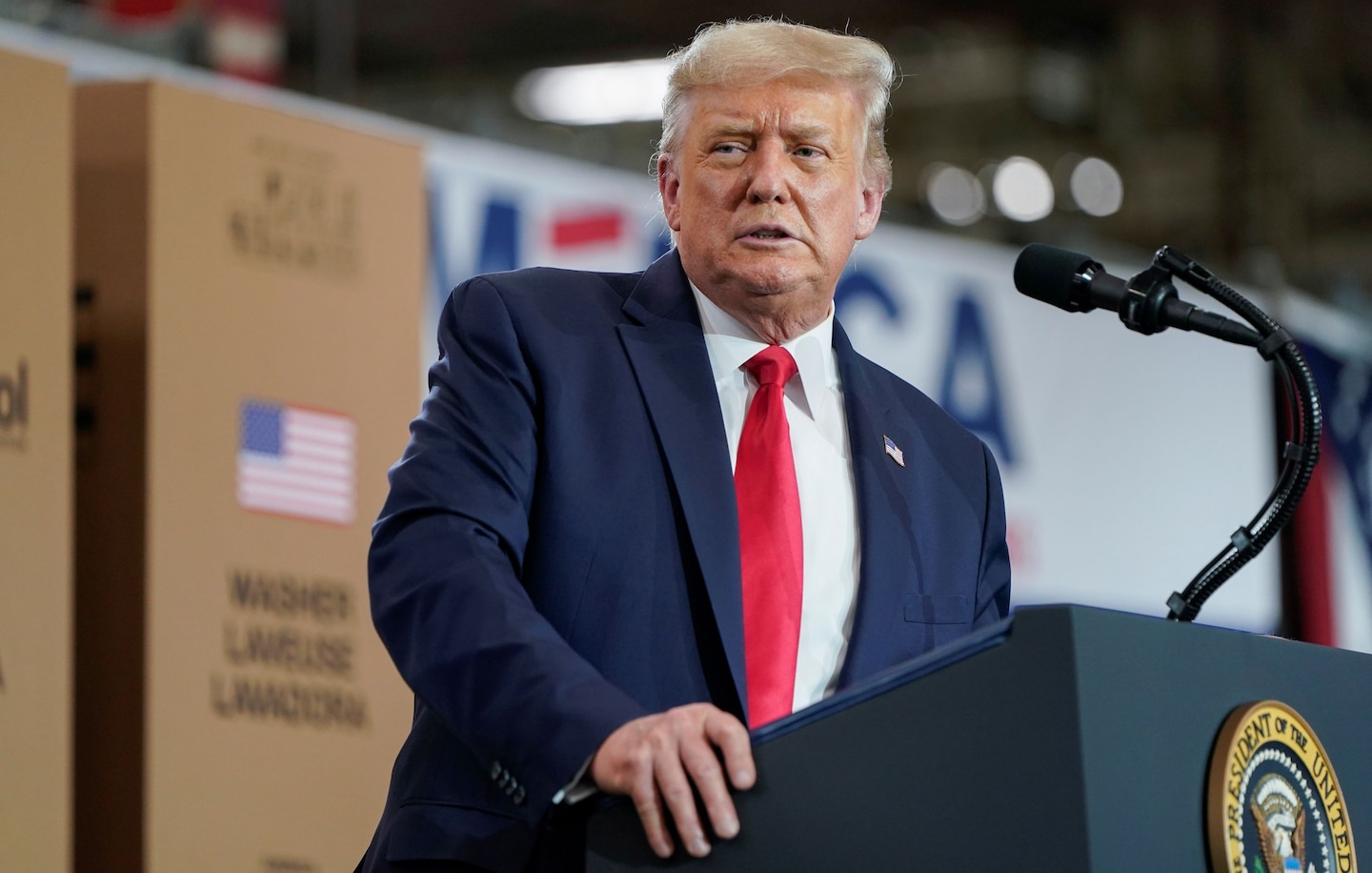Tariff Man punishes the Canadian bullies

But only 3 percent of U.S. aluminum jobs involve producing primary aluminum. Chad Bown of the Peterson Institute for International Economics explains that smelters use vast quantities of energy, so most are located where electricity is inexpensive, as in Canada, which has abundant hydropower. Only three companies smelt primary aluminum in the United States, and one of them, Alcoa, smelts globally, so these tariffs essentially serve two companies. Ninety-seven percent of U.S. aluminum jobs involve making things from the metal — things that will cost more and hence sell less because of Trump’s tariffs.
The Trump-Whirlpool romance began in 2017 when Whirlpool sought, and got, protection from imported washing machines that Americans desired because of price and quality. In 2006, when the government had worried about Whirlpool’s purchase of its largest competitor, Maytag, Whirlpool had said: Worry not, competition from imports (especially from South Korea’s Samsung and LG) will keep our prices low and quality high. Eleven years later, although Whirlpool still had a larger market share than Samsung and LG combined, Whirlpool got Trump’s administration to impose tariffs on those companies’ machines.
But in March 2018, the administration, citing the “national security” threat posed by steel and aluminum imports — mostly from military allies, including Canada, and other friendly nations — imposed tariffs on those metals. Some nations, including Canada, retaliated with tariffs, some of them on agricultural products, which caused the administration to pay billions to farmers as balm for injuries it had provoked.
When not farming in Iowa’s Butler County, Charles E. Grassley (R) chairs the Senate Finance Committee. He said there would be no ratification of the USMCA (the U.S./Mexico/Canada Agreement, NAFTA’s successor) unless the retaliation against agriculture stopped. It stopped and the USMCA passed, but the United States retained the right to reimpose tariffs on aluminum imports if they surged “meaningfully beyond historic volumes.” But imports are not, as the administration claims, “substantially” above historical levels. This year’s January-through-June imports from Canada of primary aluminum were nearly 5 percent lower than those of 2017’s first six months. But Trump, unfazed by the nuisance of numbers, unsurprisingly imposed tariffs, and Canada unsurprisingly retaliated with tariffs on U.S. goods.
Lynn A. Westmoreland, a former six-term member of Congress, says U.S. aluminum smelters produce slightly less than 1 million tons a year. In 2017, U.S. consumption was more than 5 million tons. Westmoreland says: We must buy the difference somewhere. If not from our neighbor, ally and USMCA partner Canada, “Would U.S. trade officials prefer aluminum from Russia or China?”
Steel and aluminum are used in washing machines and other appliances, and tariffs on imported metals raise prices. A few jobs are created or protected at substantial cost to the public. Fifteen months ago, this column reported on a study by a Federal Reserve researcher and two University of Chicago economists who found that the tariffs raised the prices of washing machines on average $86 — but also the prices of clothes dryers by $92 because manufacturers used the tariffs on the former as an excuse to raise prices on the latter. The 1,800 manufacturing jobs created by this protectionism cost more than $817,000 apiece.
Congress vests presidents with vast discretion for government’s management of trade, so corporations seek protection, and administrations often grant it, regardless of steep and demonstrable social costs. Those who govern us are governed by this principle: Concentrated benefits are visible and appreciated; dispersed costs are invisible and hence not resented.
Of all the congressional Republicans’ many apostasies from professed principles, none is as momentous — because none has such comprehensive implications — as abandonment of free trade. This encourages promiscuous government nullifications of market allocations of wealth and opportunity, and the displacement of consumer and producer preferences by government — meaning political — dictates, an odd achievement for a party rhetorically horrified by socialism.
Read more:






